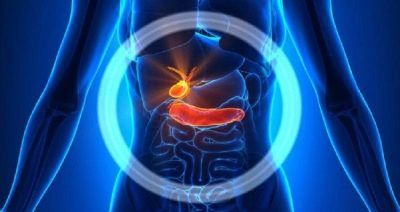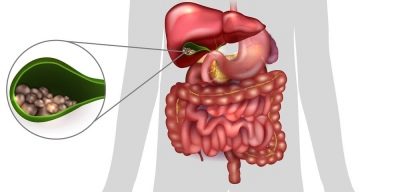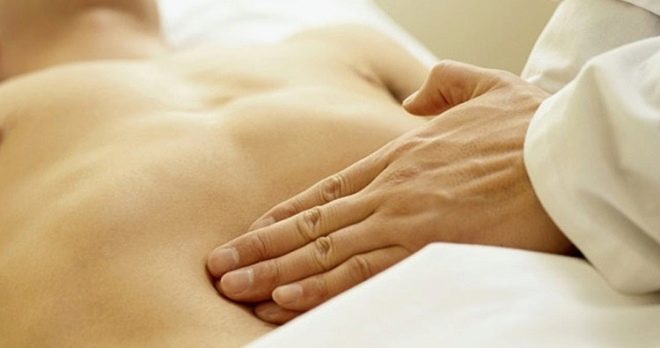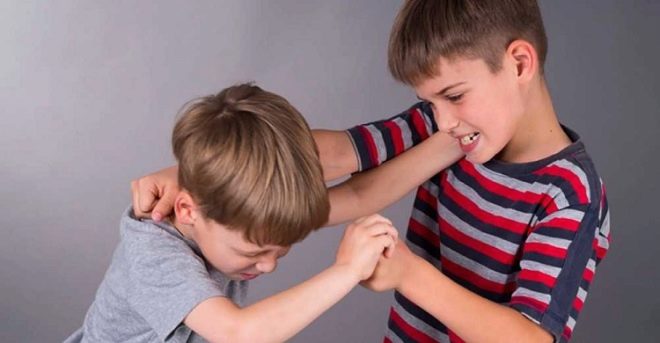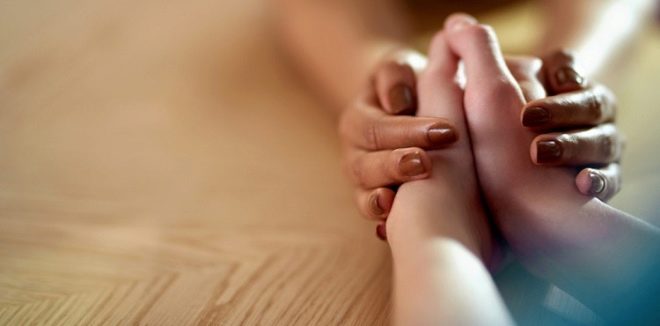Psychosomatics of gallbladder diseases in children and adults
Gallbladder diseases are considered to be quite common among adults - up to 15-17% of people experience difficulties caused by functional changes in the work of this organ. Among children, pathologies of the gallbladder are less common, about 2-3% of boys and girls with such pathologies are known, while the statistics are biased, because in childhood the diseases of the gallbladder often have a hidden course and become apparent much later.
In this article we will talk about the psychosomatic causes of gallbladder diseases and show you how to prevent such pathologies.
Medical look
Psychosomatics considers human health issues not only from the standpoint of anatomy and physiology, but also, from the point of view of the influence of mental characteristics, and the state of a person at the time of pain. But it is impossible to understand the psychosomatic causes of gallbladder problems if you do not know how this organ functions.
The gallbladder is a hollow organ of the digestive system, shaped like an elongated pear. It is attached to the lower part of the liver in the biliary fossa.
By its function, the bladder is the reservoir of bile that the liver produces.. When the need arises to digest food, the gallbladder, at the command of the brain, throws out a portion of the bile into the duodenum.
During the day, a healthy bladder accommodates the entire volume of bile produced (up to a liter in adults), but it does so in parts because the volume of the bladder does not exceed 50 ml. Bile neutralizes the acidic environment of the gastric juice, activates some enzymes, prevents pathogenic microbes from multiplying in the intestines, and also removes the toxins and decomposition products of most medicines.
The most common gallbladder disease is cholecystitis. (damage to the organ by viruses and bacteria), cholelithiasis (changes in the composition of bile and the formation of stones), impaired functioning of the neurological propertyin which there are interruptions in the work (reflux of bile, stagnation, biliary dyskinesia). But also sometimes there are polyps and organ tumorsfor example, carcinoma.
Among the causes of such pathologies are called not only viruses and bacteria, but also associated gastrointestinal ailments, in which the digestive process is disturbed. Also, doctors say that severe stress, anxiety increases the likelihood of developing gallbladder diseases.
Psychosomatic causes
For the first time, doctors of Ancient Greece drew attention to the close interrelation of the work of the digestive organs and the mental state of a person. Hippocrates tried to explain this connection, who warned that excessive anger turns a person into "gall".
At the beginning of the last century, the British psychiatrist Wittkover conducted a large study of the hypothesis proposed by his ancient Greek colleague and found that human emotions directly affect the work of his liver and gallbladder. He empirically proved that in patients in a state of joy and sadness the outflow of bile is activated, the color of this fluid changes to rich yellow. In the state of anxiety and malice, the flow of bile is reduced, which leads to stagnation and the formation of stones, the color of the liquid changes to darker.
Gall bladder reacts to a change of emotions spasmswhich lead to outflow or stagnation of the liquid medium inside it.
If spasms occur regularly, the blood supply to the organ is disrupted, which leads to the development of this or that ailment.
Researchers believe that psychosomatic the causes of diseases lie in such long-lasting emotions as insult, dissatisfaction with oneself, directed at oneself, frequent bouts of anger and irritation.
There are quite a few treatments for the gallbladder today, but failure to understand the reasons that caused the disease is likely to cause the problem to return again, if, of course, the treatment did not include gallbladder amputation. But even here there are underwater psychosomatic stones: almost 75% of people who have their gallbladder removed, after a few years, stones begin to form in the ducts of the liver. This is because the problem has not been identified and resolved.
The long years of psychoanalytic observations of patients with gallbladder pathologies have shown that two types of people are most often exposed to such diseases: very greedy men and women, often conflicting with pleasure, fostering their own anger and resentmentand often the gallbladder hurts in adults who do not love themselves, blame themselves, do not get pleasure from work, sex, or material condition.
All patients with disorders of the gallbladder are very touchy. They can be hot-tempered or secretive, but invariably both types of patients suffer from being offended for a long time and are quite capable of revenge.
The differences are that the first type of patients directs aggression to other people, tries to hurt more painfully, to make a scandal from scratch, even without visible reason, whereas the second type is no less aggressive inward. These people often cause sympathy and pity - they can be very generous, they can sacrifice their interests for the benefit of others, but they will scourge themselves with unprecedented cruelty.
Let's see what happens to the body in both cases. If such patterns of behavior and thinking have manifested themselves recently, then cholecystitis may start. - violation of blood flow due to frequent spasms of the body will be the beginning of the inflammatory process. If a person for a long time behaves in one of the two schemes described above, then he is usually found cholelithiasis or tumor formation.
Psychology problems in children
In childhood, gallbladder ailments, if they are non-congenital (this can also be), usually develop for almost the same reasons as in adults. But there are some differences between childhood diseases and adults. Bile problems are considered more adults than children, because children most often greed and Samoyed are still unfamiliar. If dyskinesia or stones develop, parents should carefully observe how and what they teach their children.. Nobody is born greedy, angry, like no one from birth has a chronic sense of guilt. All this moms and dads teach children themselves.
The prohibition to share a toy on the playground with a neighbor child, an aggressive reaction of parents to any stresses and conflicts, resentment of adults that they demonstrate so that everyone is noticeable - this teaches the child greed and sensitivity, and by adolescence the chad may well form. a bubble on the first psychotype described above.
To raise a child of the second psychotype, mom and dad need to criticize the child more often - if he gets dirty, call him “pig”, if he broke the toy, say that he is “vandal” and so on. The stronger the child’s relatives criticize, the more the crumb feels guilty.. He does not know how to express and express it. Therefore, he will guide him inward every time. So grow up a teenager sandwiched, "zatyukanny" who by habit will blame himself for the rest of his life.Typically, these children have gall bladder problems that are chronic.
Treatment
If a person, in essence, creates a disease for himself, then he must make certain efforts to get rid of his illness. In no case does psychosomatics cancel traditional treatments.therefore, of course, it is not necessary to refuse the medication prescribed by the doctor from taking medications. But at the same time you need to work with your wrong mental and emotional attitudes to eliminate them, thereby eliminating the cause of the disease.
If it is difficult to do it yourself, and you don’t have enough courage to admit that you are wrong, you can turn to a psychotherapist who will help you find and formulate the essence of the problem, as well as tell you how to get out of the disease.
Experts in the field of psychosomatics recommend that patients with gallbladder ills begin with forgiveness - you need to forgive all those who have a “stone” in their souls. In the process of forgiveness and absolution, patients usually quite quickly come to the conclusion that most of the offenses, in general, were trifling or groundless.
At the second stage, it is recommended to master the methods of control over your own anger. Excellent help meditation, yoga, swimming and martial arts.
If the gallbladder is already sore, you should avoid conflict situations by all means. At first, this may seem like a daunting task, because a person is accustomed to make trouble. Yes, some principles (not the best!) Will have to be sacrificed. But the recovery is worth it.
It is important for a person to stop blaming yourself and blaming for all the troubles. Auto-training, individual psychotherapy aimed at improving self-esteem help. As soon as he begins to notice the good things in himself and allow himself to make mistakes (we are all human!), The state usually returns to normal.
It is important to use new, positive attitudes, not only during the treatment, but also when the symptoms of the disease go away.

